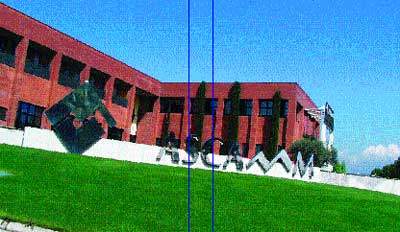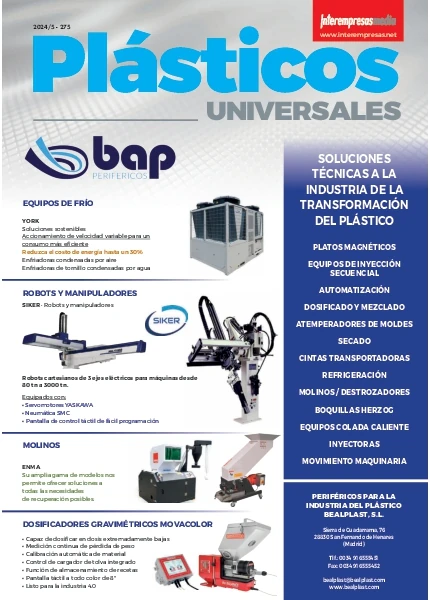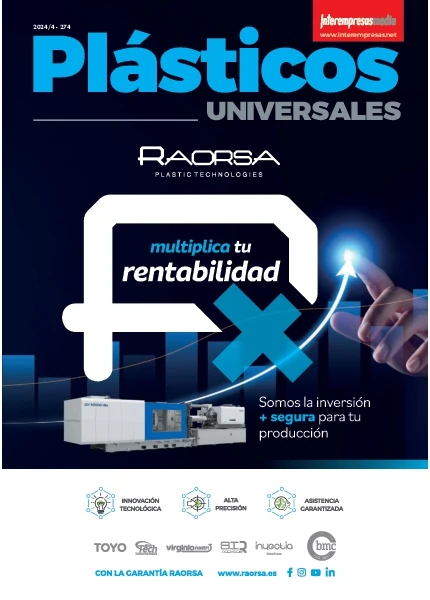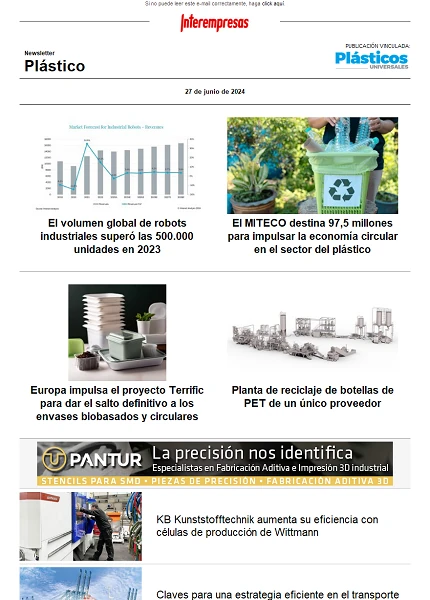This news article was originally written in Spanish. It has been automatically translated for your convenience. Reasonable efforts have been made to provide an accurate translation, however, no automated translation is perfect nor is it intended to replace a human translator. The original article in Spanish can be viewed at
La producción de moldes se automatizaráASCAMM aims at the European Commission on the digitisation of SMEs
The production of moulds will automate
The Ascamm Foundation has participated in a working session organized by the Directorate General of the society of the information (IST) of the European Union about digitalization of small and medium-sized enterprises (SMEs). One of the most prominent projects that made mention spoke of the automated production of moulds.

The meeting, which brought together associations, held in Brussels on 17 December in order to provide guidance to the European Commission. This type of actions fall within the framework of EU research programme of the sixth, set up recently.
Responsible for information of Ascamm, Ricard Jiménez, technology was commissioned to explain the specific circumstances that affect the supply chain of moldistas and millwrights - both in the plastics sector, as in the metal. He also defended the role of entities like Ascamm in the development of this VI program.
The conclusions and the presentations that were made available on the website of the IST (http://europa.eu.int/information_society/topics/ebusiness/godigital/index_en.htm)
Collaboration in network wants to create a technological environment (a network of communication), tools and language to various individuals, organizations and entities to work together on the same project
Projects of Ascamm
The presentation of Ascamm had been by title: small and medium-sized enterprises in the supply of plastic and metal processing chain. In this is it spoke of the importance the role of technology in Spain centers, that make link between public research and the needs of the industry.
In the view of Ascamm, the needs of SMEs are marked by the pressure of the market (costs, quality...), technology (basically their availability), socio-cultural problems (confidence in new technologies of communication...) and the decisions of public authorities.
On the other hand, if discusses the supply chain that affects the production of plastic parts using moulds (which is the profile of the partner to Ascamm), you will see that it is composed of three parts, the companies who design the piecesthe moldistas and those who inject those molds and manufacture these parts. Within this chain the weakest is the intermediate: which affects the moldistas.
In the view of Ascamm, information technology can alleviate these needs and Ascamm to the more competitive moldistas and in this sense has worked in recent years.
The Association classifies the projects who has worked as tools to help make decisions (knowledge engineering), collaboration (e-Collaboration and electronic commerce (e-Commerce tools.
The tools that help decision making are applications that capture the views of experts and is supplied when necessary, either using rules or accumulating experiences of many fields of application. KBE-Mould (Knowledge Based Engineering for mould design) is a project that began in 1999, funded by the European Commission, proposed by AIJU and where Ascamm has engaged in providing technical information. According to Ricard Jiménez, is a software application to automate the design of a mould from the characteristics of the piece and the number of pieces (material number, quality,...). In view of Ricard Jiménez, in the not too distant future much of the manufacturing process of a mold is automated, but for the moment this project is advanced prototype stage.
Another similar project deals with the case-based reasoning in cases for the budget and the testing of moulds. It is a project of local funding that Ascamm is currently working. It is a software application that seeks to grasp knowledge of experts. In other words, now, if an operator wants to know what parameters you can use a mold must go testing by the method of trial and error, until that, somewhat by intuition and a little experience, to give the exact-value. This application is dedicated to observe the operator and attempt to remove a large number of individual cases, some general rules that may be approaching the end result. This same system can be used to find the budget of a mold before its manufacture.
Collaboration in network
Collaboration in network wants to create a technological environment (a network of communication), tools and language to various individuals, organizations and entities to work together on the same project, is the case, for example, engineers using CAD/CAE/CAM distributed applications. Such are the projects EMould (Mouldmaking in an internet-worked world) and the network of social knowledge for the plastic supply chain.
EMould is a sort of virtual site on the internet for moldistas. It includes collaboration tools, lists of suppliers and contacts, among many other services. The social knowledge network is a non-profit project (funded by the Spanish Administration).
E-commerce
ASCAMM is also involved in some more closely associated with the actual e-commerce projects. It projects such as EurometalWeb, similar to EMould but with a scope that covers the entire sector of the metal. Entities of Italy and Portugal, in addition to the Spanish Association of companies of the metal Confemetal and Ascamm participate in this project.
The factory of the future
An expression of interest submitted to the Commission for approval within the 6th research framework programme by Ascamm binds all of these projects. This expression was called originally INTPLAST and has now taken the form of an integrated project: IP TOOL 2010. Integrated projects are a tool of the East 6th programme of the European Union that seeks to create a wide network of research environment to a project involving a large group of companies and entities. This project aims to define how will be the factories of molds of the year 2010 and to do so is to apply recent advances related to knowledge management, virtual manufacturing and the simulation of processes of manufacture among many others. As Ricard Jiménez, the project will be delivered to the European authorities before the summer for evaluation, which is expected to be completed at the end of this year
Related Companies or Entities
AIJU Instituto tecnológico de producto Infantil y ocio
Confederación Española de Organizaciones Empresariales del Metal
Eurecat (ex Fundació Privada Ascamm)



































